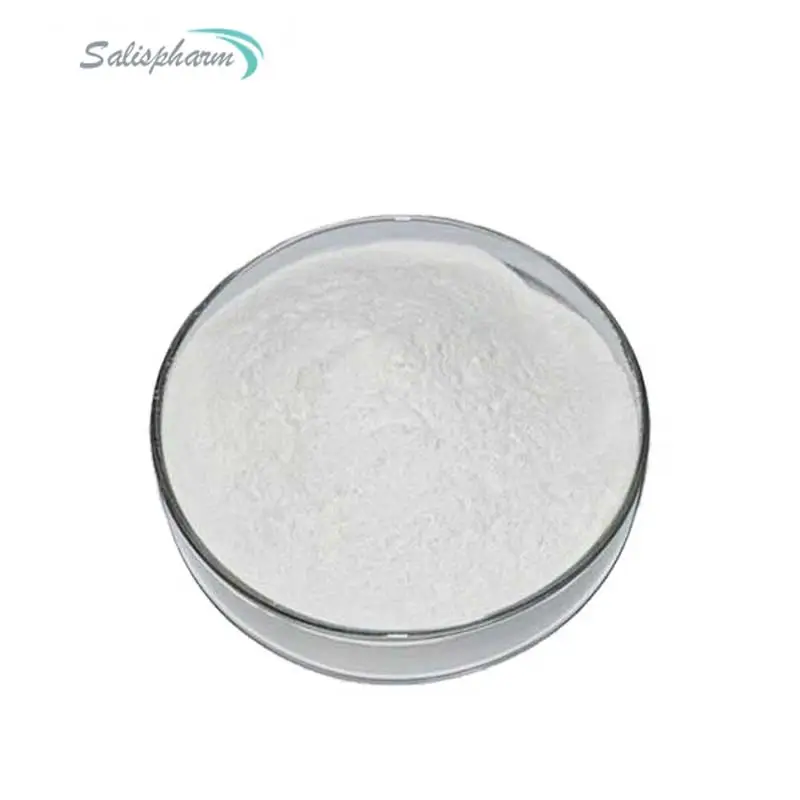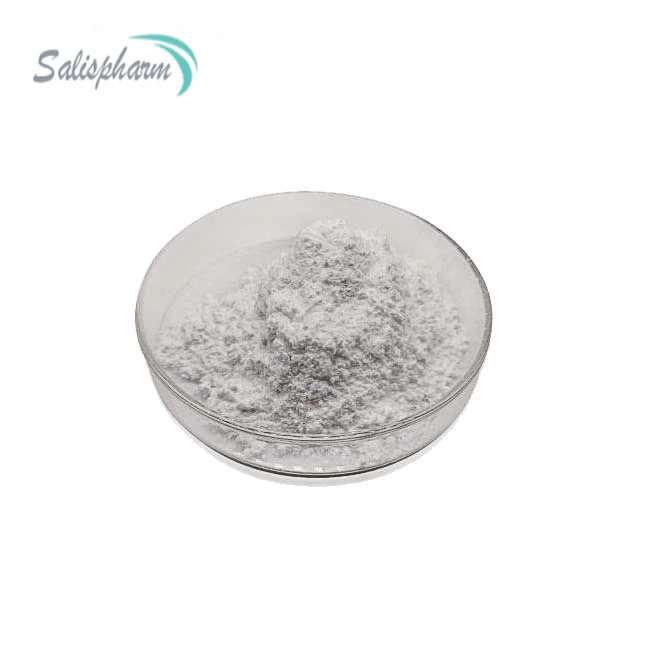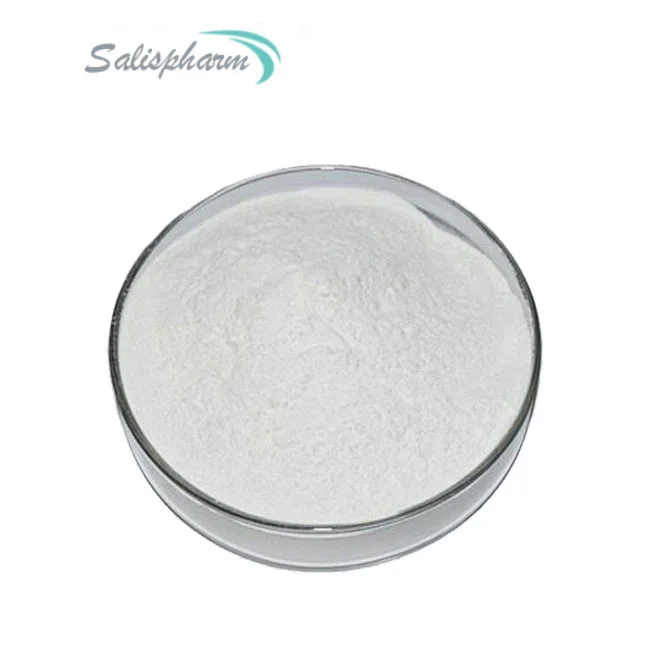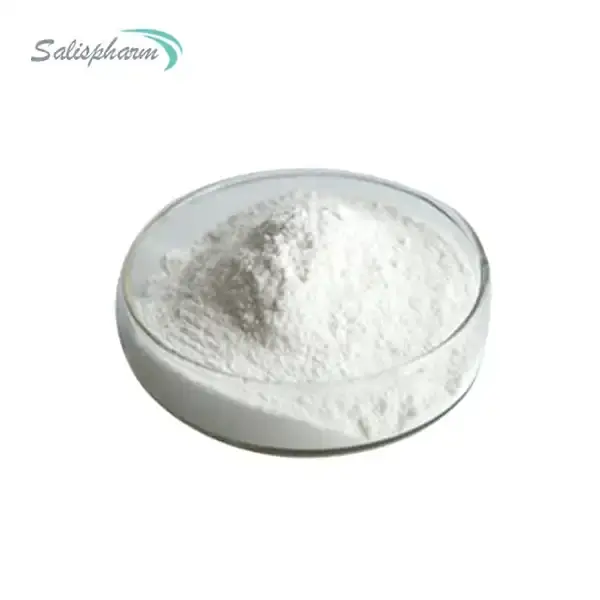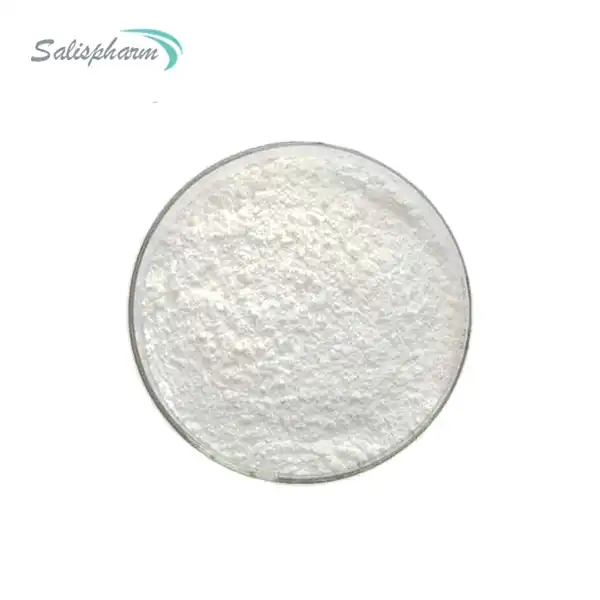Cimetidine powder and omeprazole are both medications commonly used to treat gastrointestinal issues, particularly those related to excess stomach acid. However, when it comes to using these medications together, many people have questions about safety and efficacy. This blog post will explore the use of cimetidine powder and omeprazole in combination, addressing common concerns and providing valuable insights for those considering this treatment approach.
What is cimetidine powder used for?
Cimetidine powder is a medication that belongs to a class of drugs called histamine-2 (H2) blockers. It's primarily used to treat various conditions related to excess stomach acid production. The powder form of cimetidine offers flexibility in dosing and administration, making it a popular choice for many patients.
One of the main uses of cimetidine powder is in the treatment of gastroesophageal reflux disease (GERD). GERD is a chronic condition where stomach acid frequently flows back into the esophagus, causing symptoms like heartburn and regurgitation. By reducing the production of stomach acid, cimetidine helps alleviate these symptoms and promotes healing of the esophageal lining.
Another common application of cimetidine powder is in the treatment of peptic ulcers. These painful sores can develop in the lining of the stomach, small intestine, or esophagus. By decreasing stomach acid production, cimetidine creates an environment that allows ulcers to heal more effectively.
Cimetidine powder is also used to manage conditions such as Zollinger-Ellison syndrome, a rare disorder characterized by excessive production of stomach acid. In this case, the medication helps control acid levels and prevents complications associated with the syndrome.
Additionally, cimetidine powder can be prescribed for the prevention of stress ulcers in critically ill patients. These ulcers can develop rapidly in individuals under severe physical stress, such as those in intensive care units. By prophylactically reducing stomach acid, cimetidine helps protect against the formation of these potentially dangerous ulcers.
It's worth noting that cimetidine powder may also be used off-label for other purposes. For example, some healthcare providers prescribe it to help reduce the symptoms of chronic hives or to manage certain types of headaches. However, these uses are less common and should always be discussed with a healthcare professional.
The powder form of cimetidine offers several advantages over traditional tablets or capsules. It can be easily dissolved in liquids, making it an ideal option for patients who have difficulty swallowing pills. This form also allows for more precise dosing, which can be particularly beneficial when treating children or adjusting medication levels.
How does cimetidine powder interact with other medications?
Understanding how cimetidine powder interacts with other medications is crucial for ensuring safe and effective treatment. Cimetidine has the potential to interact with a wide range of drugs due to its effects on the body's metabolism and absorption processes.
One of the most significant interactions of cimetidine is its effect on the cytochrome P450 enzyme system in the liver. This system is responsible for metabolizing many medications, and cimetidine can inhibit certain enzymes within this system. As a result, the levels of other drugs metabolized by these enzymes may increase in the body, potentially leading to enhanced effects or side effects.
For instance, cimetidine can interact with blood thinners like warfarin. When taken together, cimetidine may increase the anticoagulant effect of warfarin, potentially increasing the risk of bleeding. Patients taking both medications need careful monitoring and may require dosage adjustments.
Cimetidine can also interact with certain antidepressants, such as selective serotonin reuptake inhibitors (SSRIs). The combination may lead to increased levels of the antidepressant in the blood, potentially causing side effects or altering the medication's effectiveness.
Another important interaction to consider is with drugs that require an acidic environment in the stomach for proper absorption. Since cimetidine reduces stomach acid, it can interfere with the absorption of medications like ketoconazole (an antifungal) or atazanavir (an antiretroviral). In such cases, alternative medications or adjusted dosing schedules may be necessary.
Cimetidine can also affect the absorption and elimination of certain antibiotics. For example, it may increase the levels of erythromycin or decrease the effectiveness of cefpodoxime. Healthcare providers need to be aware of these interactions when prescribing antibiotics to patients taking cimetidine.
In the context of using cimetidine powder with omeprazole, it's important to note that both medications work to reduce stomach acid, albeit through different mechanisms. While they can be used together in some cases, doing so may not always provide additional benefits and could potentially increase the risk of side effects related to reduced stomach acid production.
When considering the use of cimetidine powder with any other medication, it's crucial to consult with a healthcare provider or pharmacist. They can provide personalized advice based on an individual's specific medical history, current medications, and treatment goals.
Is cimetidine powder or omeprazole more effective for acid reflux?
When it comes to treating acid reflux, both cimetidine powder and omeprazole are effective options, but they work in different ways and may be more suitable for different situations. Understanding the differences between these medications can help patients and healthcare providers make informed decisions about treatment.
Cimetidine, as mentioned earlier, is an H2 blocker. It works by reducing the production of stomach acid by blocking histamine receptors in the stomach lining. This action provides relatively quick relief from acid reflux symptoms, often within an hour of taking the medication. Cimetidine is particularly effective for occasional or mild acid reflux and can be used on an as-needed basis.
Omeprazole, on the other hand, belongs to a class of drugs called proton pump inhibitors (PPIs). PPIs work by blocking the proton pumps in the stomach that produce acid, resulting in a more profound and longer-lasting reduction in stomach acid production. However, omeprazole typically takes longer to provide symptom relief, often requiring several days of regular use to reach its full effect.
In terms of effectiveness for acid reflux, studies have shown that PPIs like omeprazole are generally more effective than H2 blockers like cimetidine for long-term management of GERD and healing of esophageal erosions. This is particularly true for more severe cases of acid reflux or for patients with complications such as Barrett's esophagus.
However, this doesn't mean that omeprazole is always the better choice. Cimetidine may be preferable in certain situations. For example, its faster onset of action makes it useful for rapid relief of occasional heartburn. It may also be a good option for people who experience nighttime acid reflux, as it can be taken before bed to reduce nocturnal acid production.
Another factor to consider is the potential for side effects and long-term use. While both medications are generally well-tolerated, long-term use of PPIs like omeprazole has been associated with certain risks, such as increased susceptibility to certain infections, nutrient deficiencies, and bone fractures. These risks are generally lower with H2 blockers like cimetidine.
The choice between cimetidine powder and omeprazole often depends on individual factors such as the severity and frequency of acid reflux symptoms, the presence of complications, and the patient's overall health status. In some cases, a combination of both medications might be recommended, with omeprazole used for daily maintenance and cimetidine powder used for breakthrough symptoms or occasional relief.
It's important to note that while these medications can effectively manage symptoms, they don't address the underlying causes of acid reflux. Lifestyle modifications, such as dietary changes, weight loss, and avoiding trigger foods, play a crucial role in managing acid reflux and should be incorporated into any treatment plan.
In conclusion, the decision to use cimetidine powder, omeprazole, or a combination of both should be made in consultation with a healthcare provider. They can assess individual needs, consider potential drug interactions, and recommend the most appropriate treatment strategy. Regular follow-ups are important to evaluate the effectiveness of the chosen treatment and make any necessary adjustments.
If you are also interested in this product and want to know more product details, or want to know about other related products, please feel free to contact iceyqiang@aliyun.com.
References:
1. Scarpignato, C., & Hunt, R. H. (2019). Proton pump inhibitors: the beginning of the end or the end of the beginning? Current Opinion in Pharmacology, 47, 82-89.
2. Kahrilas, P. J., & Smith, J. A. (2020). Gastroesophageal reflux disease and its complications. In Sleisenger and Fordtran's Gastrointestinal and Liver Disease (11th ed., pp. 731-749). Elsevier.
3. Savarino, V., Dulbecco, P., de Bortoli, N., Ottonello, A., & Savarino, E. (2017). The appropriate use of proton pump inhibitors (PPIs): Need for a reappraisal. European Journal of Internal Medicine, 37, 19-24.
4. Wolfe, M. M., & Sachs, G. (2000). Acid suppression: optimizing therapy for gastroduodenal ulcer healing, gastroesophageal reflux disease, and stress-related erosive syndrome. Gastroenterology, 118(2), S9-S31.
5. Strand, D. S., Kim, D., & Peura, D. A. (2017). 25 years of proton pump inhibitors: a comprehensive review. Gut and Liver, 11(1), 27.
6. Kinoshita, Y., Ishimura, N., & Ishihara, S. (2018). Advantages and disadvantages of long-term proton pump inhibitor use. Journal of Neurogastroenterology and Motility, 24(2), 182.
7. Freedberg, D. E., Kim, L. S., & Yang, Y. X. (2017). The risks and benefits of long-term use of proton pump inhibitors: expert review and best practice advice from the American Gastroenterological Association. Gastroenterology, 152(4), 706-715.
8. Maes, M. L., Fixen, D. R., & Linnebur, S. A. (2017). Adverse effects of proton-pump inhibitor use in older adults: a review of the evidence. Therapeutic Advances in Drug Safety, 8(9), 273-297.
9. Bavishi, C., & DuPont, H. L. (2011). Systematic review: the use of proton pump inhibitors and increased susceptibility to enteric infection. Alimentary Pharmacology & Therapeutics, 34(11-12), 1269-1281.
10. Targownik, L. E., Leslie, W. D., Davison, K. S., Goltzman, D., Jamal, S. A., Kreiger, N., ... & CaMos Research Group. (2012). The relationship between proton pump inhibitor use and longitudinal change in bone mineral density: a population-based study from the Canadian Multicentre Osteoporosis Study (CaMos). American Journal of Gastroenterology, 107(9), 1361-1369.



